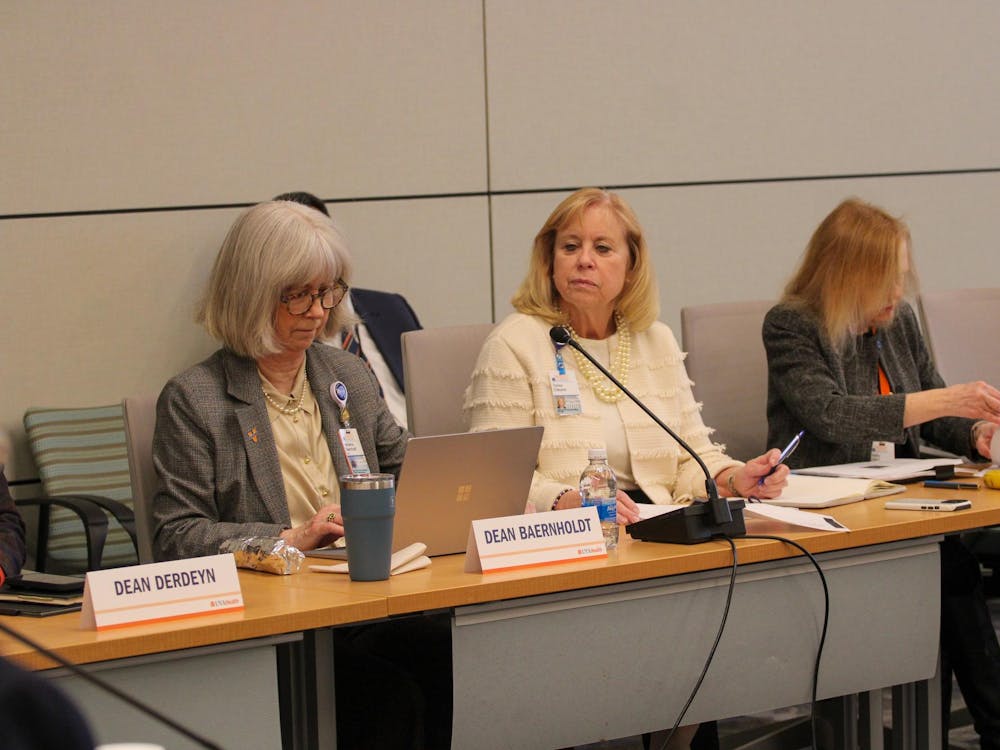As enjoyable as it is to think of the sun, relaxation and traveling which summer brings, some University students are planning to spend their vacation pursuing more purposeful projects.
The University, through the Jefferson Public Citizens program, grants money to students who want to undertake a service-learning civic engagement project. Student must apply to the program to receive funding, but first must choose a topic, a community partner, a faculty advisor and take "topic-related courses and attend informational workshops," according to the program's website.
Five of the 59 University students who received the grant in 2012 will travel this summer to Venda, South Africa to research the effects of implementing more wood-efficient stoves in local communities, after receiving a $30,000 grant from the Jefferson Public Citizens program.
Second-year College student Nicholas Allen, a computer science and global development studies major, will return to South Africa for seven weeks to work on the project, titled "Rocket Power: Accessing Energy Poverty in Rural South Africa," after a five-week study abroad trip last summer sparked his interest in the region.
The students will continue a project University students started two years ago, which Allen said involved building and implementing a "rocket stove" - an energy-efficient wood-burning stove.
Allen and his partners will spend the first part of their trip in Venda - where University students built the initial stoves at the Mashamba primary school - to observe how reduced cooking time and less wood burning has affected the Venda community.
"Cooking there is something seen as more of a community event [and] these stoves reduce the amount of wood you need to cook," Allen said. "Typically, a school will spend around four hours per day cooking."
Another pair of students will head to Guyana to live for six weeks in a Makushi village. Third-year College student Caio Setubal, a math and anthropology major originally from Brazil, and his research partner, third-year College student Elliott Oakley, received $6,000 in funding from two different grants. Along with 44 other undergraduate University students, they received the Harrison Undergraduate Research Award, which "funds outstanding undergraduate research projects to be carried out in the summer," according to the award website. The pair received an additional $3,000 from the College Council Research Grant.
Setubal said he plans to study the differences between Western mathematical systems and the numerical systems of the Makushi, as well as how such differences "change the way [the Makushi] view the world, themselves, and their relationship to the world."
"There are plenty of people in the world [who] don't do math the way we do," Setubal said. He added his study of Amazonian number systems suggested an emphasis on "community," whereas Western math is "concerned with units; everything is individual."
Another team of students who received a Jefferson Public Citizens Grant is working domestically to develop a Global Information Systems map to help NGOs collaborate on water-filtering efforts in the 12 communities around Lake Atitlan, Guatemala.
Third-year Engineering student Lacey Williams made a six-week trip to the region last summer to observe how different communities filter water. During her visit she saw the gastrointestinal issues prevalent in Lake Atitlan's hospitals.
"The seed that came out of that is just how little is known between communities or even within organizations within communities," Williams said. "For the next year we are building a network map so that NGOs are able to see what each other is doing, so the local government will know which NGOs are working there."
The map will show the size of the NGO, its location and the services it provides. The map will also serve as an online database of information for water-based NGOs, Williams said.
Williams and her team are unable to return to Guatemala this summer to continue their data collection for the map, which is set to be completed by the end of fall, because of a restriction placed by the International Studies Office on undergraduate travel to Guatemala, Honduras and Mexico.
"We were really surprised, but it allows us to work on a project [which] is even more collaborative," Williams said. A graduate student on the team will visit the area this summer, so Williams said she and the other undergraduates will rely on him and other local community partners to collect data.







